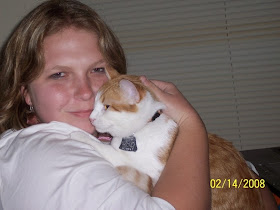If you've read my books or followed my blog for any length of time you've probably got an idea where on the political spectrum I lie. I try not to make a big thing of it, because I don't care to alienate any of my readers (although, of course, some authors make big bucks alienating about 50% of their readers.) I personally want my blog and my literature to have an inclusive atmosphere, where people from all walks of life will feel welcome - although, there I might be betraying my political leanings again.
I'd be lying if I said I never use my blog as a soapbox, but I
tend not to, hewing to the principle that literary agent Janet Reid recently laid out on
her own very popular blog: if you follow me, it's because of things other than political rants, so you'll probably forgive me the occasional political rant.
I don't especially want to rant about politics, but rather I'd like to rant about the way we debate things in this country. And, yes, I'm afraid we're going to veer into some lefty/righty stuff, so fairly warned. With all that as preamble, I want you to just take a look at this rather popular Facebook post which I've screencapped here:
I'd wager that how you react to this is going to be based on your political leanings. If you're a conservative, you're probably going, "Yeah!" and if you're a liberal you're probably shaking your head in dismay. You may not even know
why you're doing either of those things. It's just kind of a given: if someone makes a point you agree with, you'll tend to take their facts at face value, and if you disagree, you'll probably find some reason, even a piddling one, to disagree with them.
Now, this is the point where I guess it's going to get kind of political, hence my lengthy preamble, but, okay, fairly warned. My problem with this post, as an exemplar of the political conversation in our country, is that it's utter horseshit. This is the sort of thing my 9th grade Speech and Debate teacher wouldn't have let fly, if not my 4th grade arithmetic teacher.
The problem, for those of you on both sides of the aisle attempting to grapple with it, is that Ms. Harris - if she indeed came up with any of this - is comparing apples and oranges. This is, like, basic math here. She's cherrypicking two particular numbers at the farthest possible extremes, and comparing them side-by-side like that's where they belong.
She's comparing a
theoretical $15 fast food worker's salary of $31,200 (let's say this will actually occur in, I dunno, 2030) with a
current private's salary of $18,378. If we represented this graphically it would look like this:
| Job |
2015 Salaries |
2030 Salaries |
| Fast Food
Worker |
? |
$31,200.00 |
| Private |
$18,378.00 |
? |
I mean, it's total horseshit. Why did she pick those two numbers to compare? Because they look the worst side-by-side. She'd rather pretend those other two numbers don't exist, because they paint a more complete picture. Which, what the hell, let's look at it.
| Job |
2015 Salaries |
2030 Salaries |
| Fast Food
Worker |
$15,080.00 |
$31,200.00 |
| Private |
$18,378.00 |
$38,023.45 |
Wow, that's...wow. That paints a completely different picture doesn't it? It almost completely undermines her argument. First of all, in terms of stark contrast, the fact that a fast food worker making minimum wage and working full time only makes 15K a year is mortifying. That's our minimum wage, people. That's considered something you can live off of. If you're reading this on a computer screen you paid for yourself, odds are you're probably make twice that, if not four or five times that amount.
Then there's the other point she's ignoring, which is that if the minimum wage was raised, a private would necessarily have to make more, even if he was only making the minimum wage. But the truth is that military pay rates are decided based on an algorithm which makes them competitive, with certain considerations, with similar civilian jobs.
Now, just providing the full math paints a much fuller picture. Just comparing apples with apples and oranges with oranges provides a solid basis from which both sides of the debate could proceed. Reasonable adults can disagree. That's the basis of a civil society. With these numbers, both sides could pick and prod and raise deeper issues. But Ms. Harris doesn't provide us with these numbers. She just shows the most stark comparisons, even if they are, essentially, nonsensical. Which leads to my first bullet point of disdain about debate in modern political discourse:
1. Facts are cherry-picked
Now, assuming I give both sides the benefit of the doubt, and believe that no one simply out-and-out lies - which is decidedly not the case - there are still issues where a politician trying to make his case simply doesn't lay out all the facts. It's as though they fear that providing us with all the facts may make us come to a different conclusion. Which is, come to think of it, not a terrible assumption to make.
But let's dig a little deeper. Ms. Harris used an insanely simple method for coming up with her numbers. She pulled the private and the sergeant's pay from a monthly payscale (presumably from 2014 since it's changed now) and multiplied by 12. Then she took a $15 per hour wage, multiplied it by 40 hours a week, and then by 52 weeks in a year. But she didn't say any of that, and part of the reason why she didn't may have been an honest oversight, but it may well have been because it would wildly undermine her case.
Because, looking at those calculations in context any reasonable person would go, "Holy shit! That means literally zero time off!" That means no holidays, no sick days, no planned leave of any sort. That means working non-stop, Monday through Friday, every goddamned week of the year. Also, not every year has exactly that many working hours, but that's a minor quibble; I probably would have used the same calculating method myself.
It also means no overtime, no holiday pay, no shift work, no nothing, which is all part and parcel of a wage job, as anyone knows. Harris is applying the thought processes of a salaried position to a wage position. So there's a deeper contextual issue here. For one thing, she's comparing a salaried position (military) with a wage position (restaurant worker.) And those are difficult things to compare. But we also have to wonder, why did she choose those two particular jobs to compare in the first place? Probably for emotional reasons to help her case, but no matter, the choices were made, so let's go with them.
Now what's
truly problematical for me here is that I actually served in the military and I know how pay is calculated, and I know what all goes into it, and Ms. Harris either doesn't know, or is deliberately ignoring all of that. Any E-1, E-5, or for that matter O-7 knows that basic pay is not the end of the story. You also get housing allowance, subsistence allowance, and, oh yeah, benefits.
A military private pays $0 for total health care coverage. He also doesn't pay for his food, clothes, or house. His commuting expenses can be as minimal as free if he lives on post. Oh, and, he also gets an enlistment bonus and periodic re-enlistment bonuses, and periodic promotions if he's not a fucking idiot. Ms. Harris also deliberately brings up that these fellows are under fire, except...
Not if he's making 18K and change a year. Because there's also hostile fire pay when you're in a war zone, not to mention that wartime wages are not taxed.
My point is not that a Service Member makes too much. Christ knows they don't make nearly as much as they should. My point is that ganking the number $18,378 off a payscale tells a story bereft of all context. As does multiplying the minimum wage a couple of times and ignoring living expenses. In other words:
2. Facts are presented out of context
Now that I've more or less given you the rest of the facts
and given them to you in context, you can probably think a little bit harder about the situation, and a little bit deeper. Maybe you still draw the same conclusion. As I said, reasonable adults can disagree, and there is a far greater context to the minimum wage debate than either Harris or I have presented thus far.
For one thing, will raising the minimum wage cause employers to rely more heavily on automation, and thus reduce overall jobs? What about real-world examples? Rather than drawing chalk figures on an imaginary board, what happens in places where wages are high vice low? For that matter, if you raise wages, aren't you giving disposable income to a ready customer base, i.e. your employees, who are already in your store and perfectly willing to buy your products?
There are so many things to examine, we have a plethora of conclusions to draw. But in the screed above we're presented with one:
Raising the minimum wage means that fast food workers will make more than Service Members.
This seems morally reprehensible. Of course, it's complete horseshit, as I've already laid out in excruciating detail. But once you've drawn this conclusion, it's hard to back down from, isn't it? It's hard to leave behind the moral highground and fight fact with actual fact. Which leads to:
3. Erroneous conclusions are defended rather than exploded
And one final point. It's so minor, I hesitate to even bring it up in light of the much greater logical issues I've already addressed. But, it's such an important part of Ms. Harris's argument, I can't ignore it altogether. Every time she makes a point, she belittles her strawman of an opponent. "Johnny Fry-Boy," "Sally McBurgerflipper," and so on.
Her point is she hates fast food workers. She hates the idea that she would have to take their feelings into account. She's probably on to something from a debate standpoint, actually. Each and every one of us has had a bad experience at a fast food restaurant, either a jacked-up order or a cracked-out cashier or a shortchanging or something. We ignore the hundred (thousands?) of times in our lives that everything goes swimmingly at the McDonald's, and remember the times it doesn't.
Part of that is just human nature overall. We attribute coincidence to good or bad fortune, and ignore countless instances of failed coincidence. We look for patterns where there are none, and see faces on Mars. The point is: the general public probably has a bad taste in their mouths about fast food workers. (Which, incidentally, is probably why Harris chose that particular minimum wage job rather than hospice worker or something more sympathetic...but I digress...)
By making her opponents look foolish, Harris is attempting to sway the sympathies of the undecided. "If only a stupid burger flipper is for this, then what are you?" she seems to be asking. In other words:
4. Ad hominem attacks
I'm sorry for picking on Jennifer Harris, by the way, who I don't know from Adam, nor do I feel particularly strongly about this issue. It's certainly not my most passionate cause or anything. I just felt that this one small excerpt seemed to encapsulate everything that's wrong with the way we discuss things with one another in just a few short paragraphs, and I hoped that a well thought-out exegesis could be illuminating. You might disagree with my conclusions, in fact abut 50% of you probably do...but let's try to look past our political thoughts and analyze our logical arguments.
So what do you think? Are these sorts of discussions always going to be reduced to the lowest common denominator? Do intelligent people know better? Do intelligent people know better and not care, as long as the argument supports what they already agree with? Should we look at better methods of fighting our political fights? Feel free to let me have it in the comments.

























